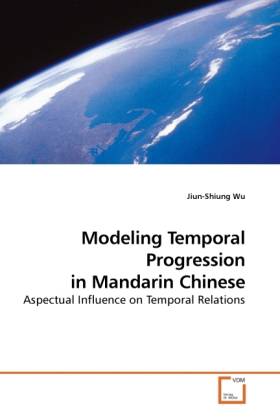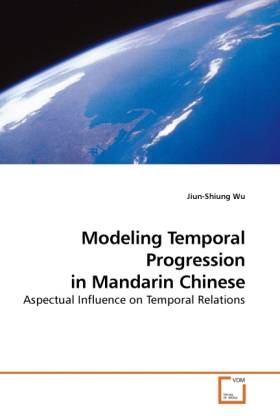
- Afhalen na 1 uur in een winkel met voorraad
- Gratis thuislevering in België vanaf € 30
- Ruim aanbod met 7 miljoen producten
- Afhalen na 1 uur in een winkel met voorraad
- Gratis thuislevering in België vanaf € 30
- Ruim aanbod met 7 miljoen producten
Zoeken
€ 77,95
+ 155 punten
Omschrijving
This book discusses how to determine temporal relations between sentences with aspect markers in a discourse in Mandarin Chinese. The author examines the four aspect markers in Mandarin Chinese: the progressive zai, the durative zhe, the perfective le and the experiential guo. Following Segmented Discourse Representation Theory, which proposes that temporal relations are determined by rhetorical relations, the author argues that, based on its aspectual semantics, an aspect marker indirectly influences temporal relations in two ways: First, it specifies a defeasible rhetorical relation, which in turn determines a temporal relation; second, it sets up a temporal constraint to be obeyed by the temporal relations specifid by the rhetorical relations which connect the sentences together.
Specificaties
Betrokkenen
- Auteur(s):
- Uitgeverij:
Inhoud
- Aantal bladzijden:
- 496
- Taal:
- Engels
Eigenschappen
- Productcode (EAN):
- 9783639205589
- Verschijningsdatum:
- 27/11/2009
- Uitvoering:
- Paperback
- Formaat:
- Trade paperback (VS)
- Afmetingen:
- 152 mm x 229 mm
- Gewicht:
- 721 g

Alleen bij Standaard Boekhandel
+ 155 punten op je klantenkaart van Standaard Boekhandel
Beoordelingen
We publiceren alleen reviews die voldoen aan de voorwaarden voor reviews. Bekijk onze voorwaarden voor reviews.











